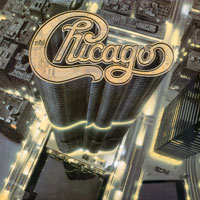Background
After recording sessions in Morin-Heights, Quebec and Hollywood, Chicago 13—which saw the band return to numbering its albums (the first album to use an Arabic numeral in its numbering) and displaying its logo—was released in August 1979, and was preceded by Donnie Dacus's "Must Have Been Crazy" as lead single. Chicago 13 is the first Chicago album to bear no significant hit singles, and "Street Player" was the first single in the band's history to miss the Billboard Hot 100 entirely.
Despite negative reviews, Chicago 13 reached No. 21 and went gold, although it was the band's first album to miss the Top 20 and was then the lowest charting release since their debut album. Shortly after the tour to support the album ended, Dacus was fired from the band without explanation.
In 2003, Chicago 13 was remastered and reissued by Rhino Records with Dacus's "Closer to You" (an outtake from the Hot Streets sessions, released as the non-album B-side of "Must Have Been Crazy") and the 12-inch single mix of "Street Player" as bonus tracks.
The opening track, the extended disco-styled "Street Player," reached number 91 on the R&B singles chart. The songs "Street Player" and "Closer to You" had previously been released by other artists: "Street Player" by Rufus, who recorded it before Chicago, and "Closer" by Stephen Stills, though with Donnie Dacus on co-lead vocals. "Street Player" did eventually reach hit status, being sampled for the 1995 hit "The Bomb! (These Sounds Fall into My Mind)" by The Bucketheads, the 2009 hit "I Know You Want Me (Calle Ocho)" by Pitbull and the 2013 remix by dance music producer "Tradelove". [5]
This page is based on this
Wikipedia article Text is available under the
CC BY-SA 4.0 license; additional terms may apply.
Images, videos and audio are available under their respective licenses.
